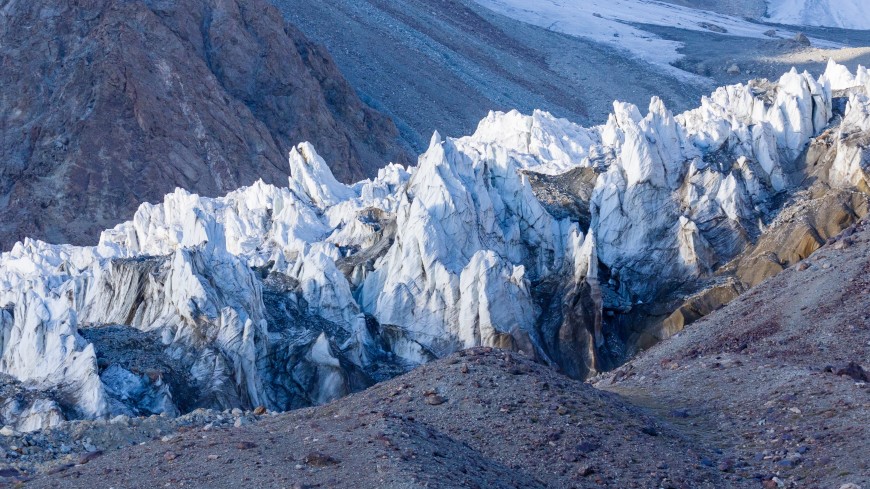The future of Tajikistan's glaciers
Dushanbe is also coming to terms with the effects of climate change in a country where glaciers cover 6% of the total surface area and offer important freshwater reserves. The challenge of a more rational exploitation of water resources is also to mitigate the risks of conflict in the other Central Asian states.
Dushanbe (AsiaNews) - Tajikistan has been committed for years to the defense and conservation of its large glaciers, and the Cop28 in Dubai, together with other international ecology conferences, have attracted the interest of the entire international community over the past year. Tajik energy engineer Kamolidin Sirožidinov published his assessment on AsiaPlustj, to remind us that "catastrophes can only be avoided if we understand what is happening".
In Tajikistan there are thousands of ice accumulations, in which 400 cubic kilometers of very high quality fresh water are preserved, a quantity 8 times higher than the annual flow of river water, and this has been the case since time immemorial.
As Sirožidinov explains, “these enormous water reserves are not excluded from the natural circle of water in nature, on the contrary they directly participate in it with a role of extraordinary importance, they are the source that generates life throughout Central Asia” .
The great rivers Amu Darya and Zeravšan flow from the Tajik glaciers, and feed them generously during the hot summer months, and especially during the years of greatest drought, as occurred in 2023.
In these cases the glaciers lose a large quantity of the aquifer reserves, accumulated over the course of many years, which partly reform in the colder and wetter years. The regulatory function of glaciers, the engineer recalls, "is man's main hydrogeological advantage", and it is particularly urgent to intervene on the dynamics of ice movement, the sliding of crystals and gravitational descents, on which new and very different from each other.
The movement of the ice is not uniform: in the center the glacier moves faster than at the sides, where it is slowed down by friction on the ground. The cracks that form and intersect cause the formation of blocks of ice separated from each other, which fall at very different speeds.
The erosion of mountain peaks depends on these phenomena, creating new peaks and valleys often separated by fragile barriers, and causing the smaller glacier formations to disappear. As Sirožidinov warns, "there is currently a lack of data on the real degradation of Tajikistan's glaciers and water basins, and on the consistency of the land formed by their transformations."
The uncertainties of the resistance of glaciers, in this era of climate change, are considered dependent on global warming and pollution. For the Tajik expert it becomes essential to be able to distinguish between "slow or secular oscillations and those of short periods", learning to scrutinize the "depths of the glaciers" with greater knowledge of the nature of its waters and the essence of physical events, for purposes scientific and practical.
Glaciers cover 6% of the territory of Tajikistan, and only more in-depth research "will allow us to use the water resources of the rivers connected to them in a more rational way", without panicking about the "imminent catastrophe" or the "war of waters” like the one feared in relation, for example, to Afghanistan's plans to grab the resources of the Amu Darya.
The waters can be protected and rearranged in many different dimensions, exploiting the lakes and basins that arise from the pulsations and movements of the glaciers, making them available to all the states and peoples of Central Asia.







.png)










